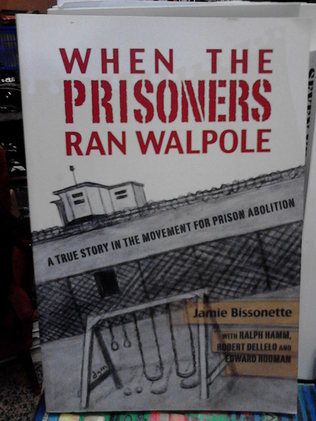Pozdrav i dobrodošli u naš webshop!
Ovdje možete pregledati i naručiti sva izdanja Što čitaš? i izdanja drugih izdavačkih kuća, te majice, bedževe... Sve što se nalazi u webshopu možete pronaći i u našoj knjižari u Zagrebu na adresi Frankopanska 22. Za druge gradove i države narudžbe primamo putem interneta, a prije naručivanja pogledajte uvjete i načine dostave.
Katalog
- ANARHIZAM
- FILOZOFIJA, SOCIOLOGIJA, ANTROPOLOGIJA
- PSIHOLOGIJA
- DRUŠTVENI POKRETI, ANTIKOLONIJALNE BORBE
- FEMINIZAM, ROD/SPOL
- POEZIJA
- KNJIŽEVNOST
- SLIKOVNICE I DJEČJA KNJIŽEVNOST
- DUHOVNOST, EZOTERIJA, ASTROLOGIJA
- BIOGRAFIJE, PUTOPISI, KORESPONDENCIJE, MEMOARI
- UMJETNOST, FOTOGRAFIJA
- VRT, BILJE I ZDRAVLJE
- POVIJEST
- MUZIKA
- ZNANOST
- KAZALIŠTE
- TEORIJA KNJIŽEVNOSTI, POVIJEST KNJIŽEVNOSTI
- MITOLOGIJA
- ARHITEKTURA, URBANIZAM
- FILM
- ZNANSTVENA FANTASTIKA / SF
- ENIKLOPEDIJE, LEKSIKONI, ATLASI, KARTE, VODIČI
- URADI SAM/DIY
- FOTOGRAFIJA
- STRIPOVI
- SVAŠTARA
- ČASOPISI
Pretraga
WHEN THE PRISONERS RAN WALPOLE
A True Story in the Movement for Prison Abolition

In 1971, Attica’s prison yard massacre shocked the public, prisoners, and political leaders across the United States. Massachusetts residents pledged to prevent such slaughter from ever happening there, and the governor agreed. Thus began a move for reform that eventually led to the prisoners at Walpole’s Massachusetts Correctional Institute winning control of its day-to-day operations. When the Prisoners Ran Walpole brings this vital history to life, revealing what can happen when there is public will for change and trust that the incarcerated can achieve it. In the months before they took over running the maximum-security facility in 1973, prisoners and outside advocates created programs that sent more prisoners home for good, slowing the turn of the famous revolving door by 23 percent and decreasing Walpole’s population by 15 percent. When guards protested the changes they saw as choking their livelihoods, finally refusing to run the prison, the prisoners stepped ably into the void—and all-out peace ensued. They shrank the murder rate from the highest in the country to zero. Even more significantly, they worked hard to bury racial antagonism and longstanding feuds so even “lifers” with no hope of going home could find ways to live together, learn, and grow—to regain, finally, the humanity that the system intended to squash. Critical to the work of prison abolitionists and transitional reformists alike, this groundbreaking history offers a real-life example of a prison solution many see only as theoretical. It not only reminds us why people seek to make prisons obsolete, but also recalls a time when we were much closer to these abolitionist goals. Jamie Bissonette, co-director of an AFSC (American Friends Service Committee) Criminal Justice Program, wrote her inspiring account with the aid of the complete archives and interviews bestowed to her by the prisoners, outside advocates, and policymakers who created this remarkable history.
Frankopanska 22
Zagreb

pon-pet 10:00 - 20:00
subotom 10:00 - 14:00
